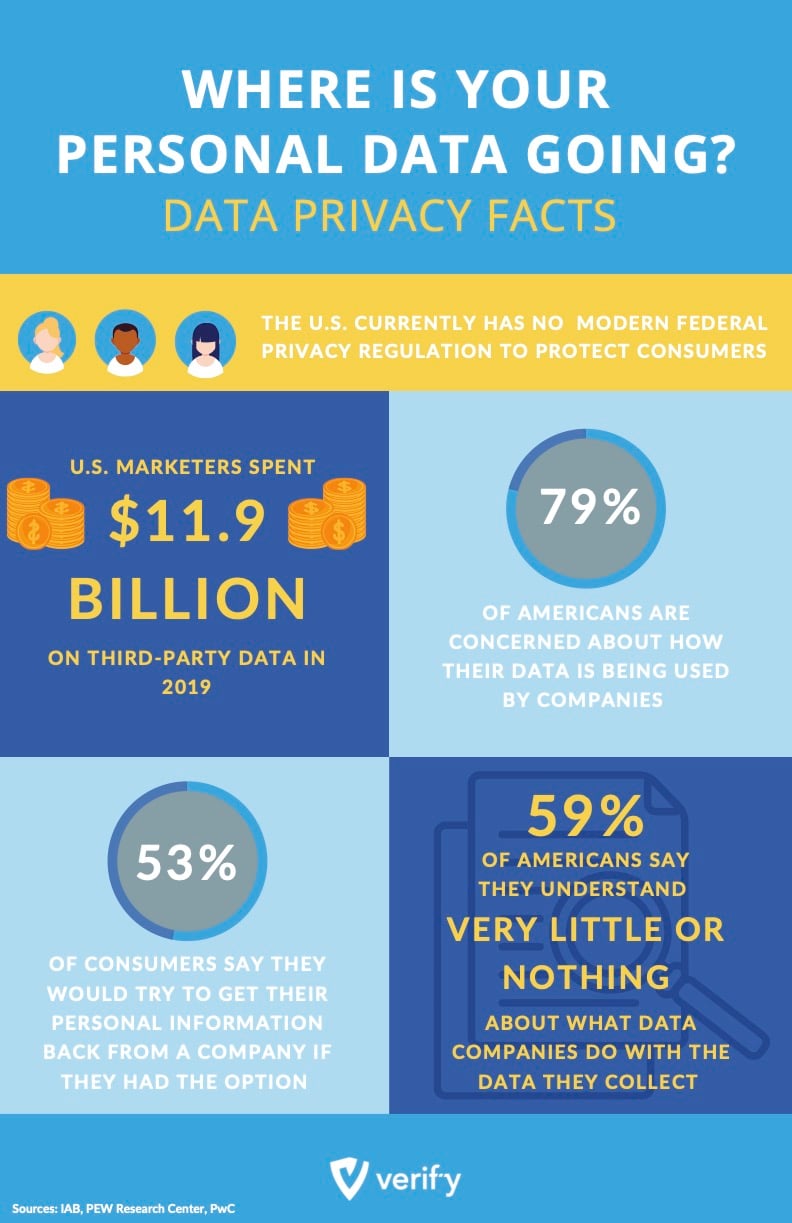The Current State of Data Privacy

A consumer’s data footprint is established from the moment they are born and lingers for years after they pass.
It is an asset that is as unique as a fingerprint and, as such, can influence how others view an individual. Digital Identity is comprised of a consumer’s electronic activities and can include, but is not limited to, use of cellular phone, visits to websites, orders from online retailers, search history, your car, some items that you purchase (in the form of RFID tags) and a myriad of other activities that make up a person’s day. If you decide to wear a personal tracking device for monitoring sleep patterns, your personal data is tracked twenty-four hours a day, three hundred & sixty-five days a year, sometimes with your permission and most of the time without your permission.
In other words, in a society made easier through digitized means, we have in turn become the commodity.
The rights afforded consumers vary greatly from country to country and, in the case of the United States, vary greatly from state to state. Additionally, in the United States, the type of consumer information determines the protections afforded the consumer. As an example, the California Consumer Protection Act (CCPA) gives California residents specific rights to the use of their data but, if that data is financial, the resident’s protections are limited to protections offered under Federal law as part of the Graham Leach Bliley Act (GLBA). As a result, it is more important than ever for consumers to know their rights and hold the companies that collect their data accountable.

Stay tuned for more of the Verif-y Privacy Blog series!


.png)